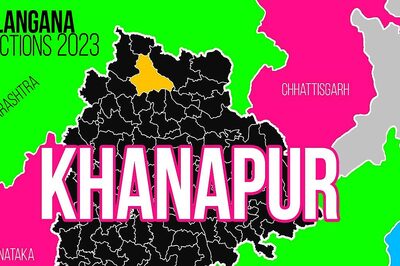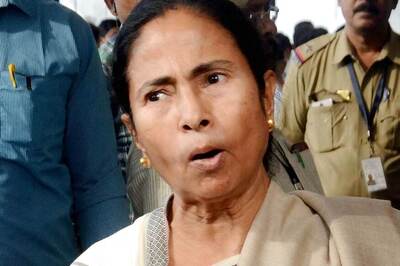
views
The Islamist extremist group Boko Haram has claimed responsibility for abducting hundreds of boys from a boarding school in Nigeria’s northwestern Katsina state, according to an audio recording released on Tuesday.
Last week’s abductions added to growing public anger over violence and insecurity across Africa’s most populous nation.
Following are details on the violence affecting different regions.
ISLAMIST INSURGENTS, NORTHEAST NIGERIA
Boko Haram and its Islamic State offshoot, Islamic State West Africa Province, have waged a decade-long insurgency in northeastern Nigeria.
The violence has displaced about 2 million people and killed more than 30,000, according to the United Nations refugee agency and the Council on Foreign Relations (CFR), a New York-based think tank.
Nigerian troops began withdrawing last year to “super camps” that can be more easily defended against insurgents, but this left villages, roads and civilians more vulnerable to attacks, according to security officials and residents.
Late last month, Boko Haram killed scores of farmers, and beheaded some of them, in the Borno state.
However, the group has not previously claimed attacks in the northwest of Nigeria.
BANDITS, NORTHWEST NIGERIA
Armed gangs that rob and kidnap for ransom, commonly described as “bandits”, are active across the northwest.
Such groups killed more than 1,100 people in the first half of 2020 alone, according to rights group Amnesty International.
Amnesty said it had “documented an alarming escalation in attacks and abductions” since January.
The banditry has made it difficult, and in some cases impossible, to farm, travel or tap some states’ rich mineral assets, such as gold.
FARMER-HERDER CLASHES, MIDDLE BELT
Clashes between nomadic cattle herders and farmers in Nigeria’s Middle Belt have killed thousands of people and displaced half a million over the past decade, according to estimates from French medical charity Medecins Sans Frontieres.
In the past, authorities have blamed the violence on religion or ethnic divisions, but locals say the groups are fighting for access to fertile land and water. [https://reut.rs/3agztKy]
Experts fear the conflict will become worse as global warming intensifies competition for scarce resources.
PROTESTS AGAINST POLICE BRUTALITY, NATIONWIDE
What began as largely peaceful protests against police brutality turned violent in October after security forces fired on demonstrators, according to witnesses and Amnesty.
At least 10 people were killed in the upscale Lagos neighourhood of Lekki on Oct. 20, Amnesty said. The army and police denied shooting protesters there and have said their actions during the protests kept the nation safe.
In the days that followed, rioting, looting and lawlessness broke out across the country. It was the worst unrest in Nigeria since the end of military rule in 1999.
PIRACY, VANDALISM AND THEFT IN NIGER DELTA
The turmoil and lack of economic development in the oil-producing Niger Delta region led oil companies this year to step up security for their installations.
Kidnappings are also common in the area. Additionally, the number of attacks by pirates in the Gulf of Guinea, most of whom experts say are based in Nigeria, has risen sharply in recent years. The Gulf of Guinea now accounts for 95% of all global maritime kidnappings, according to the International Maritime Bureau.
(Additional reporting by Camillus Eboh and Felix Onuah in Abuja; Editing by Alexis Akwagiyira, Alexandra Zavis and Timothy Heritage)
Disclaimer: This post has been auto-published from an agency feed without any modifications to the text and has not been reviewed by an editor
Read all the Latest News, Breaking News and Coronavirus News here




















Comments
0 comment